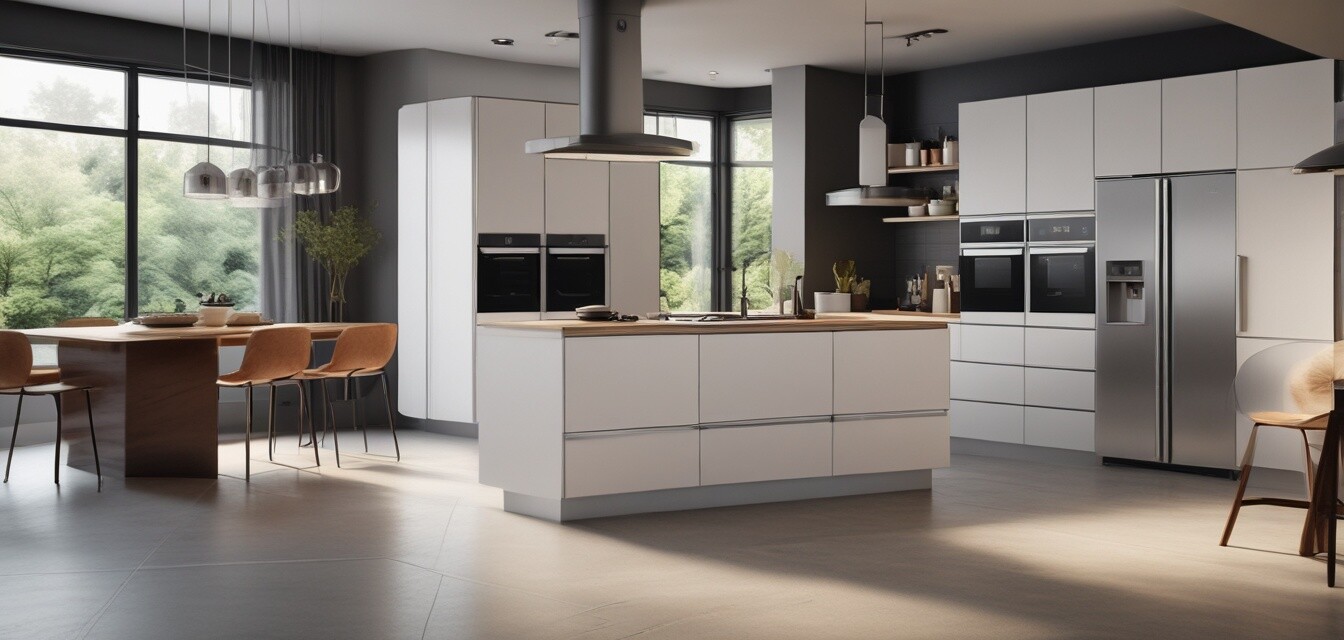
The future of smart kitchen connected appliances
Key Takeaways
- Smart kitchen appliances are becoming increasingly interconnected and user-friendly.
- Current trends include the integration of IoT devices, fostering a seamless cooking experience.
- Security and privacy are central considerations as technology advances.
- Bluetooth-enabled devices and intelligent cooktops are leading innovations reshaping the kitchen landscape.
- Eco-friendly technologies are gaining traction, enhancing sustainability in kitchen practices.
As technology evolves, the kitchen appliance industry continues to innovate. Smart kitchen appliances are changing the way we cook and manage our kitchens by increasing efficiency and connectivity. Let's explore the upcoming trends and technologies that will redefine our cooking experiences.
Understanding smart kitchen technology
Smart kitchen technology refers to appliances and devices that can connect to the internet, allowing for remote control, user personalization, and data analysis. From Bluetooth-enabled appliances to intelligent cooktops, these innovations are designed to enhance convenience in everyday cooking tasks.
The importance of connectivity
Connectivity is at the core of smart kitchen technology. As more devices and appliances communicate with one another, they provide users with a cohesive cooking environment. This connectivity facilitates:
- Remote management of appliances through smartphones or voice assistants
- Seamless updates to recipes and cooking applications
- Real-time alerts about appliance performance or maintenance needs
Emerging trends in smart kitchen appliances
Here are some of the most exciting trends driving the evolution of smart kitchen appliances:
1. Internet of Things (IoT) integration
The IoT ecosystem is poised to revolutionize kitchen management. Smart devices can share data among themselves, allowing for unprecedented automation. For example, an intelligent oven can receive data from a connected refrigerator about the ingredients available, suggesting recipes accordingly.
2. Voice-activated technology
Voice-activated devices, like smart speakers, are being integrated into the kitchen. This feature enables hands-free operation of various appliances, making cooking more efficient. Imagine adjusting oven settings while stirring a pot without touching your smartphone!
3. Adaptive learning
Smart appliances that learn from user habits will optimize their functionalities. By adapting to preferences and routines, these appliances will enhance overall user experience. This kind of technology is seen in smart ovens and other cooking devices.
4. Enhanced energy efficiency
With a growing awareness of sustainability, energy-efficient smart appliances are on the rise. These devices monitor energy consumption and suggest optimal usage patterns, making it easier for homeowners to reduce their environmental impact.
5. Advanced security features
As smart kitchens become more interconnected, security remains a prime concern. Manufacturers are focusing on safeguards against unauthorized access and cyber threats. Robust encryption and two-factor authentication methods are becoming standard in appliances.
Comparing traditional vs. smart kitchen appliances
| Feature | Traditional Appliances | Smart Appliances |
|---|---|---|
| Connectivity | No | Yes, internet-enabled |
| Remote control | No | Yes, via app |
| User personalization | Limited | High |
| Data analytics | No | Yes, performance tracking |
| Energy efficiency | Standard | Optimized |
The impact of smart technology on cooking experiences
With the integration of these advanced technologies, home cooks can expect more enjoyable and efficient cooking experiences. Users will be able to experiment with recipes, monitor cooking progress in real time, and adjust settings automatically—all enhancing the joy of cooking.
Conclusion
The future of smart kitchen connected appliances is bright, with ongoing innovations leading to more simple, efficient, and enjoyable cooking experiences. As these technologies become commonplace, they will help redefine not just how we prepare meals, but how we interact with our kitchens on a daily basis.
Pros
- Enhanced convenience and efficiency in meal preparation.
- Integration of multiple devices leads to a cohesive cooking environment.
- Adaptive learning personalizes user experiences.
Cons
- Increased reliance on internet connectivity may pose issues during outages.
- Potential cybersecurity risks with connected devices.
- Higher initial investment compared to traditional appliances.
Stay updated
To keep track of the latest developments in kitchen technology, check out our blog on Kitchen Technology News. You won't want to miss the innovations that are shaping the future of smart kitchens!